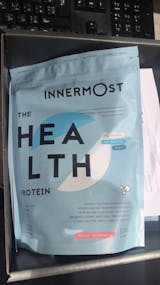If you ever find it difficult to drop off to sleep, you’re not alone. It’s thought that up to a third of adults in the UK experience problems with their sleep, whether that’s having trouble nodding off, waking in the night or having your eyes pop open at 5am and immediately know you have zero chance of getting any more rest.
We all know the litany of common suggestions for improving your sleep, such as limiting your screen time, having a bath before bed and laying your head on the pillow at the same time each night. Sometimes, however, you end up lying exhausted in a bath for hours only to find that as soon as you climb under the covers, you’re so alert you could probably stay awake through even the most boring school maths lesson. At those times, sipping a hot drink or counting sheep just isn’t going to cut it.
Enter sleep yoga, or yoga nidra. A form of deep and relaxing meditation, it’s a way of disengaging your senses in the same way sleep does, trains you to sleep more deeply and makes it easier for you to fall asleep in the first place. When you engage with the practise over a period of time, it can even help to repair your sleep cycles and improves your overall quality of rest.
It’s different to the kind of meditative yoga that you might have tried before, as it involves no poses and involves lying down and listening to a set of guided instructions delivered by a yoga instructor, either in person or online. Spending some time doing nothing and having it count as doing yoga sounds pretty good to us. The key to the practise, instead of the flexibility and breathing that are the building blocks of other forms of yoga such as ashtanga or bikram, is surrendering yourself to the guidance of the teacher and not trying too hard.

A session of sleep yoga often begins with a body scan, where you bring awareness to different parts of your body slowly, one at a time, while relaxing your muscles and breathing deeply. The aim of yoga nidra is to ease you into a sleep-like state while you remain conscious. The specifics of the practise differ depending on the teacher, but common areas of focus include reflecting on the day’s events, considering your needs and your goals, focusing your energy on your intentions and even listening to your own heartbeat. You can choose a different teacher or type of session depending on what you feel like you need to work on that day. It’s important to note that the entire point of how to do sleep yoga is that it’s impossible to do wrong, so don’t stress too much about the particulars.
While the end goal of yoga nidra is, of course, to sleep, you’re not supposed to be drifting off during the meditation itself. In fact, the best time to engage in the practise is in the middle of the day, when you’re experiencing your post lunch energy slump. Lying down and forcing your body and mind to relax in the middle of the day will give you a dose of peace which will carry you forward to the nighttime, enabling you to fall asleep faster and stay asleep longer. Plus if you’ve been tossing and turning every night, resting in the afternoon will help you to function better during the day.
Often when you’re struggling to fall asleep, you end up beating yourself up because you haven’t managed to do so, and sleep yoga takes the stress of this away by being designed to intentionally keep you awake - that way if you do happen to nod off, it’s all to the good. One of the benefits of yoga nidra is that it’s designed to affect the brain waves the same way as sleep does, so although you might be awake, the restful state simulates sleep.
While the number of studies on sleep yoga is small, there is evidence to suggest that it’s beneficial and could help with insomnia. The journal Current Psychology found in a recent study of 95 people that listening to an 11 minute long meditation every day for a month lowered levels of stress, increased feelings of wellbeing and improved sleep quality. Another study done on veterans of the Vietnam war who suffered from post-traumatic stress disorder found that a weekly practise of yoga nidra increased feelings of peace, self-awareness and relaxation.
Regardless, if you’re suffering from insomnia and stress and are struggling with your sleep, it’s hard to think of a reason not to try a type of yoga where all you have to do is lie down, to see if it will help your stress levels and the bags under your eyes.
Inspired to try yoga nidra? Try these videos to see if it’s for you.
Yoga Nidra 20 Minute Guided Meditation
Pure Blissful Relaxation and Stress Relief Yoga Nidra Meditation























